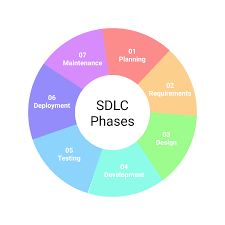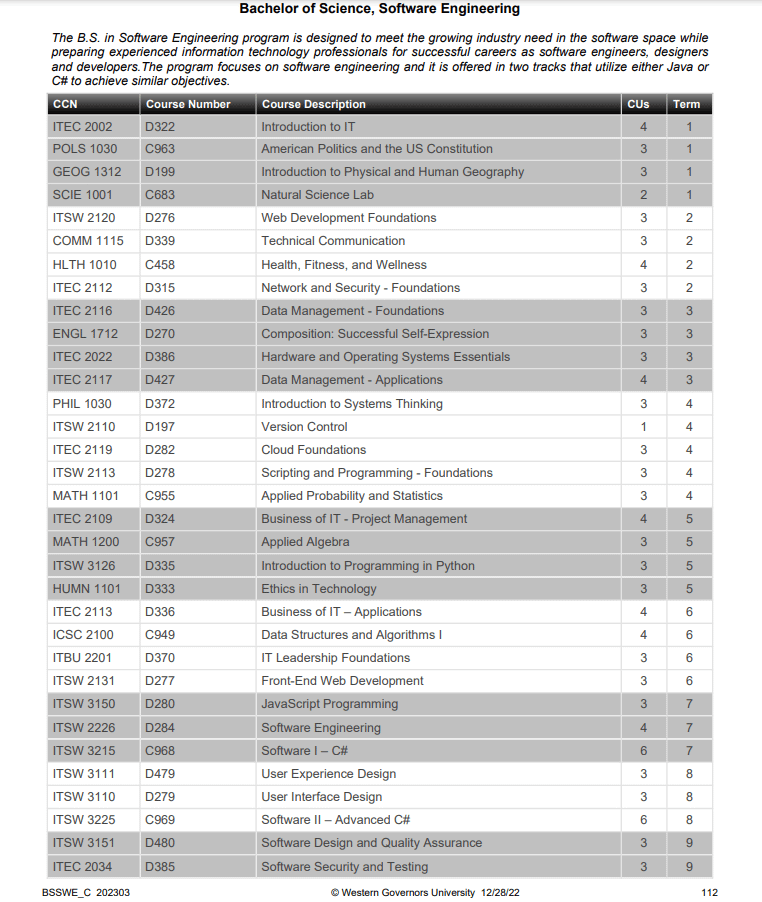The Role of a Software Development Engineer
A software development engineer is a professional responsible for designing, developing, and testing software applications. This role requires a combination of technical skills, creativity, and problem-solving abilities to create functional and user-friendly software solutions.
Key Responsibilities:
- Coding: Writing clean, efficient code using programming languages such as Java, C++, Python, or others.
- Testing: Conducting thorough testing to identify and fix bugs or issues in the software.
- Collaboration: Working closely with other team members, including developers, designers, and project managers.
- Problem-Solving: Analyzing complex problems and implementing effective solutions within the software.
- Continuous Learning: Staying updated on the latest technologies and trends in software development.
Skills Required:
- Programming Languages: Proficiency in one or more programming languages is essential for a software development engineer.
- Problem-Solving: Strong analytical skills to identify and solve technical challenges efficiently.
- Teamwork: Ability to work collaboratively with others to achieve project goals.
- Attention to Detail: Ensuring that the software meets quality standards and specifications.
- Communication: Effective communication skills to convey technical concepts to non-technical stakeholders.
Career Outlook:
The demand for skilled software development engineers continues to grow as businesses rely more on technology for their operations. Career opportunities exist in various industries, including tech companies, finance, healthcare, and more. With experience and expertise, software development engineers can advance into roles such as lead developer, technical architect, or project manager.
Top 5 Benefits of Being a Software Development Engineer: Innovation, Demand, Growth, Problem-Solving, and Collaboration
- Opportunity to work on cutting-edge technologies and innovative projects.
- High demand for skilled software development engineers in various industries.
- Potential for career growth and advancement into leadership roles.
- Ability to solve complex problems and create impactful solutions through coding.
- Collaborative work environment that fosters creativity and teamwork.
7 Challenges Faced by Software Development Engineers
- High Stress Levels
- Long Hours
- Continuous Learning Curve
- Isolation
- Debugging Challenges
- Pressure to Perform
- Burnout Risk
Opportunity to work on cutting-edge technologies and innovative projects.
Software development engineers have the exciting opportunity to work on cutting-edge technologies and innovative projects, allowing them to stay at the forefront of technological advancements. By being involved in projects that push the boundaries of what is possible in software development, engineers can continuously expand their skills, knowledge, and creativity. This exposure to new technologies not only keeps their work dynamic and engaging but also positions them as valuable contributors to groundbreaking solutions that shape the future of technology.
High demand for skilled software development engineers in various industries.
The high demand for skilled software development engineers across various industries highlights the critical role they play in driving technological innovation and digital transformation. As businesses increasingly rely on software solutions to streamline operations and enhance customer experiences, the need for talented professionals who can design and develop cutting-edge applications continues to grow. Software development engineers are sought after in industries such as technology, finance, healthcare, and e-commerce, offering abundant opportunities for career growth and advancement in a dynamic and ever-evolving field.
Potential for career growth and advancement into leadership roles.
Software development engineers have a significant advantage in their potential for career growth and progression into leadership roles within the technology industry. With experience and expertise in software development, these professionals can transition into positions such as lead developer, technical architect, or project manager. The dynamic nature of the field offers ample opportunities for software development engineers to take on more responsibilities, lead teams, and drive innovative projects, ultimately shaping the future of technology within organizations.
Ability to solve complex problems and create impactful solutions through coding.
Software development engineers possess a remarkable ability to tackle intricate problems and deliver significant solutions through their coding expertise. By leveraging their technical skills and problem-solving acumen, they can analyze complex issues within software systems and develop innovative solutions that have a tangible impact on enhancing functionality and user experience. Their proficiency in coding allows them to create efficient and effective solutions that address the specific needs of users and businesses, showcasing their invaluable role in driving technological advancements and digital innovation.
Collaborative work environment that fosters creativity and teamwork.
A significant advantage of being a software development engineer is the collaborative work environment that encourages creativity and teamwork. By working closely with other team members, including developers, designers, and project managers, software engineers can leverage diverse perspectives and skills to tackle complex problems and create innovative solutions. This collaborative atmosphere not only enhances the quality of the software being developed but also fosters a sense of camaraderie and mutual support among team members, leading to a more dynamic and fulfilling work experience.
High Stress Levels
High Stress Levels: Meeting tight deadlines and resolving complex technical issues are common challenges faced by software development engineers, often resulting in high levels of stress. The pressure to deliver quality software within limited time frames can be intense, leading to long hours of work and heightened anxiety. The constant need to troubleshoot and debug code adds to the stress levels, as any oversight can have significant repercussions on the project timeline. It is crucial for software development engineers to practice effective stress management techniques and maintain a healthy work-life balance to cope with the demanding nature of their roles.
Long Hours
Software development engineers often face the con of long hours, particularly during crucial phases of project development. The demanding nature of software projects, with tight deadlines and complex requirements, can lead to extended work hours to meet deliverables. This can result in burnout, fatigue, and a poor work-life balance for software engineers. The pressure to deliver high-quality code within strict timelines may necessitate working overtime, sacrificing personal time and potentially impacting overall well-being. Finding a sustainable approach to managing workload and setting realistic expectations is essential in addressing the challenge of long hours in software development engineering.
Continuous Learning Curve
Navigating the continuous learning curve is a significant challenge for software development engineers. The rapid evolution of technologies and frameworks in the tech industry demands constant upskilling and adaptation to stay relevant. This ongoing learning process can be time-consuming and overwhelming, requiring engineers to invest significant effort in staying abreast of the latest trends and advancements. Balancing project deadlines with the need for continuous learning poses a conundrum for software development engineers, highlighting the demanding nature of this dynamic field.
Isolation
Extended periods of focused work in software development can sometimes result in a conundrum of isolation for software development engineers. The intense concentration required to solve complex problems and write code may lead to feelings of disconnection from the team. This isolation can hinder effective collaboration and communication among team members, potentially impacting the overall synergy and productivity of the development process. It is crucial for software development engineers to find a balance between individual focus and team interaction to foster a supportive and cohesive work environment.
Debugging Challenges
Debugging challenges can pose a significant con for software development engineers. The process of identifying and fixing complex bugs in the code can be both frustrating and time-intensive. It requires meticulous attention to detail, strong problem-solving skills, and patience to track down the root cause of issues within the software. Debugging challenges can lead to delays in project timelines and impact overall productivity, making it a demanding aspect of the software development process that engineers must navigate carefully.
Pressure to Perform
Software development engineers often encounter the con of facing immense pressure to deliver flawless products within tight timelines. The expectation to meet project deadlines and produce high-quality software can create a stressful work environment where individuals may feel overwhelmed. The pressure to perform can lead to increased levels of stress, potential burnout, and a higher risk of making errors in the rush to meet deadlines. Balancing the need for speed with the necessity of maintaining quality standards can be a significant challenge for software development engineers in demanding projects.
Burnout Risk
The demanding nature of the software development engineer role poses a significant con in the form of burnout risk. The high-pressure environment, tight deadlines, and continuous problem-solving can lead to mental and physical exhaustion if proper work-life balance is not maintained. Long hours spent coding and debugging, coupled with the need to stay updated on rapidly evolving technologies, can take a toll on the well-being of software development engineers. It is crucial for individuals in this field to prioritize self-care, set boundaries, and seek support to prevent burnout and sustain long-term career success.




